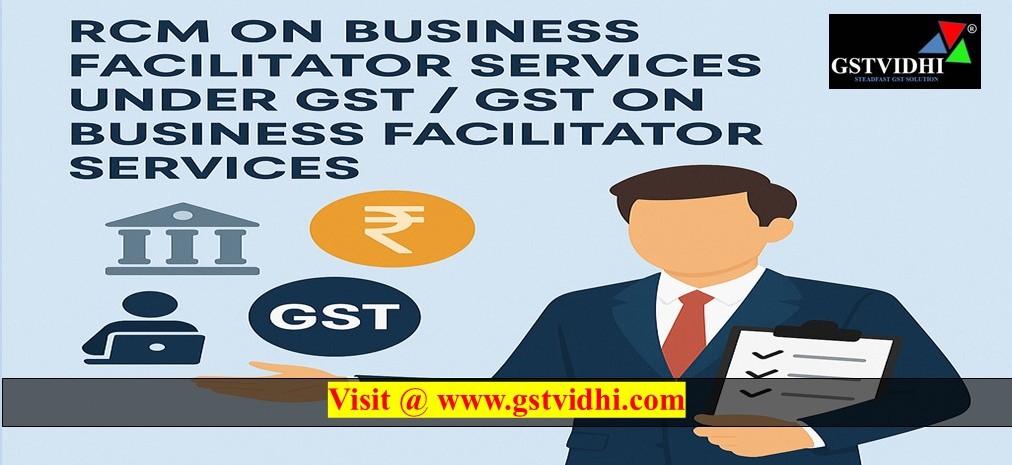
RCM On Business Facilitator Services Under GST / GST On Business
Facilitator Services – A Simple Guide
Introduction: Business Facilitators (BFs) play a big
role in helping banks provide services in areas where regular bank branches may
not be easily available. They help people open bank accounts, fill out loan
forms, and understand financial products, especially in rural and semi-urban
areas. Under GST law, services provided by Business Facilitators are considered
taxable, but there are some important exemptions and special rules to make
compliance easier.
GST
Applicability from 01 January 2019:
From January 1, 2019, GST
is applied on BF services under a system called the Reverse Charge Mechanism
(RCM). This means that instead of the Business Facilitator paying the tax, the
bank that receives the service is responsible for paying the GST. This rule was
made to reduce the compliance burden on small service providers like BFs, many
of whom work individually or in small teams.
GST Regime – From
01.01.2019 Onwards
As per Notification No.
13/2017 – CT (Rate) and Notification No. 10/2017 – IT (Rate):
|
Sl.
No.
|
Service
Category
|
Supplier
|
Recipient
|
|
12
|
BF
services to banks
|
Business
Facilitator
|
Banking
Company (in taxable territory)
|
Exemptions
Under GST:
However, if the services
of a Business Facilitator are related to bank accounts in rural branches,
then such services are exempt from GST. The government clearly wants to
encourage banking in rural areas, and this exemption supports that goal. There
are also exemptions when BFs or intermediaries assist in providing services in
rural areas to insurance companies. In such cases, GST does not apply. But if
these services are provided in urban or metro areas, the tax must be paid under
the forward charge, where the BF pays the GST.
Who Can Be
a Business Facilitator?
So, who can be a Business
Facilitator? These are not regular bank employees. They could be individuals,
NGOs, self-help groups, post offices, rural kiosks, or even local panchayats.
Their job is to support the bank in reaching out to people, processing paperwork,
educating customers, and following up on loans or recoveries. They are paid by
the banks as per their agreements, and banks are not allowed to charge the
customer separately for the BF’s services. However, the banks may include these
service charges in a transparent manner within their fee structure.
GST
Valuation of BF Services
When it comes to GST
valuation, the total amount paid to the BF is considered. This includes the
service fee, travel or other related expenses, and any reimbursement unless it
qualifies as a pure agent transaction. All such components are included in the
value on which GST will be calculated under RCM.
To understand whether the
service is exempt or taxable, the location of the service matters. If the BF is
working for a rural bank branch, then the service is exempt. But if it is for
an urban, semi-urban, or metropolitan branch, the tax must be paid under RCM.
Similarly, if a BF
provides services to an insurance company in a rural area, GST is not
applicable. But in urban or metro areas, GST applies, and the BF must register
and pay tax under forward charge. Rural areas are defined based on land records
and whether the area has been notified as urban by the government.
Under GST rules, the place
of supply depends on whether the recipient is registered. If the bank or
insurance company is registered, the place of supply is their location. For
unregistered recipients, if the address is available, that will be the place of
supply; otherwise, it will be the location of the supplier.
Conclusion: In summary, Business Facilitators are
helping bring banking and financial services closer to the people, especially
in rural India. The GST law supports their work by making compliance easier
through reverse charge and giving exemptions for services in rural areas.
Understanding these provisions is important for both banks and BFs to avoid
confusion and ensure smooth operations.
Disclaimer: All the Information is based on the notification, circular advisory and order issued by the Govt. authority and judgement delivered by the court or the authority information is strictly for educational purposes and on the basis of our best understanding of laws & not binding on anyone.
Click here